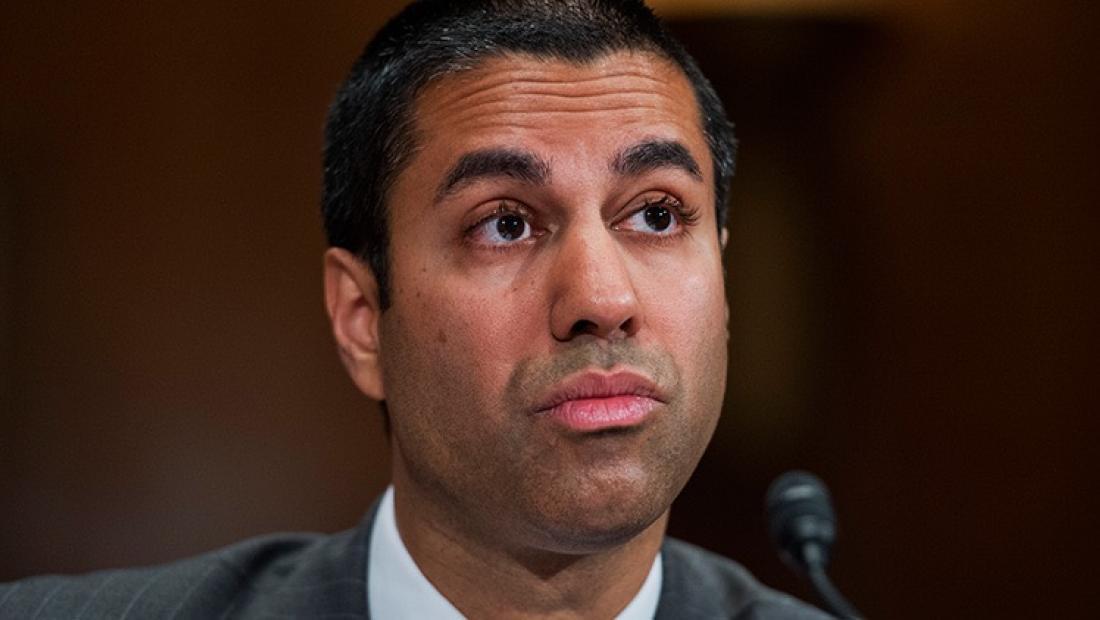Pai Pans 'All-Knowing Vortex' of Government

The smarter way to stay on top of broadcasting and cable industry. Sign up below
You are now subscribed
Your newsletter sign-up was successful
FCC chairman Ajit Pai talked up the "entrepreneurial spirit of markets" over the "all-knowing vortex of government."
That came in a panel session Friday at the Conservative Political Action Conference in Washington, where Pai, preaching to a conservative choir, appeared briefly on a panel with his fellow Republican FCC Commissioners, Michael O'Rielly and Brendan Carr.
Pai said it was that spirit that would get broadband to rural areas and entrepreneurs from the drawing table to the board , as well as promote advancements in healthcare and education.
Related: Pai Gets NRA Gun for Bagging Net Neutrality Rules
He said his FCC recognizes the power of citizens rather than that of a few unelected bureaucrats.
Pai said closing the digital divide was the FCC's prime directive and "unleashing" the human capital in rural areas would have both economic and societal benefits.
Commissioner O'Rielly added that the FCC's goal was to get government out of the way of the entrepreneurs who are trying to get technology into the audience's hands and "taking those burdens off the books."
Carr shared the views of removing government impediments, but focused on the smaller providers, saying that in many cases, the large ISPS like Comcast, AT&T and Verizon that, for the most part, can withstand "the regulatory onslaught and burdens."
Carr said removing unnecessary regulatory burdens will help those smaller operators, who are on the front lines of rural buildouts.
Moderator Michelle Connolly, former FCC chief economist, asked Pai why he took on net neutrality, particularly after the vitriol and attacks aimed his way from net neutrality activists.
Pai said he had a choice when he was named by the President as chairman. "Some people urged me to go for sacrifice bunts and singles and try to nibble around the edges by making some minor changes, but I don't play small ball and I decided that I wanted to make a fundamental change in the way the agency operates."
Related: FCC KO'S Net Neutrality Rules
He said that rolling back the rules was consistent with his overall philosophy of turning control back over the people by getting rid of government regulation of the Internet, which he said was not broken. He said the results "are going to speak for themselves."
Of the personal attacks, Pai said he was going to "swing for the fences and let the chips fall where they may." He also said he would continue to speak out against the "poisonous political culture."
O'Rielly put in a plug for President Donald Trump to be re-elected as one way of insuring that the network neutrality reg rollback will not be undone by the next Administration. That and electing conservatives to Congress. But he also said the vote in the Senate on the Congressional Review Act resolution that would nullify the Dec. 14 decision to eliminate the rules mattered.
Carr said that the FCC's new economic office, once institutionalized, could help prevent political swings by establishing cost-benefit analyses of all new regs--though presumably a Democratic chair could un-create the office.
The group American Oversight said following O'Rielly's comments about the President getting re-elected that O'Rielly had violated the Hatch Act prohibition on federal employees engaging in partisan activity. It sought an immediate investigation.
A spokesman for Commissioner O'Rielly was not immediately available for comment, but his office told the Washington Post: "“Commissioner O’Rielly was asked a question on how to prevent the agency from ping ponging back and forth. He tried to respond in a factual way without engaging in advocacy.”
The smarter way to stay on top of broadcasting and cable industry. Sign up below
Contributing editor John Eggerton has been an editor and/or writer on media regulation, legislation and policy for over four decades, including covering the FCC, FTC, Congress, the major media trade associations, and the federal courts. In addition to Multichannel News and Broadcasting + Cable, his work has appeared in Radio World, TV Technology, TV Fax, This Week in Consumer Electronics, Variety and the Encyclopedia Britannica.

